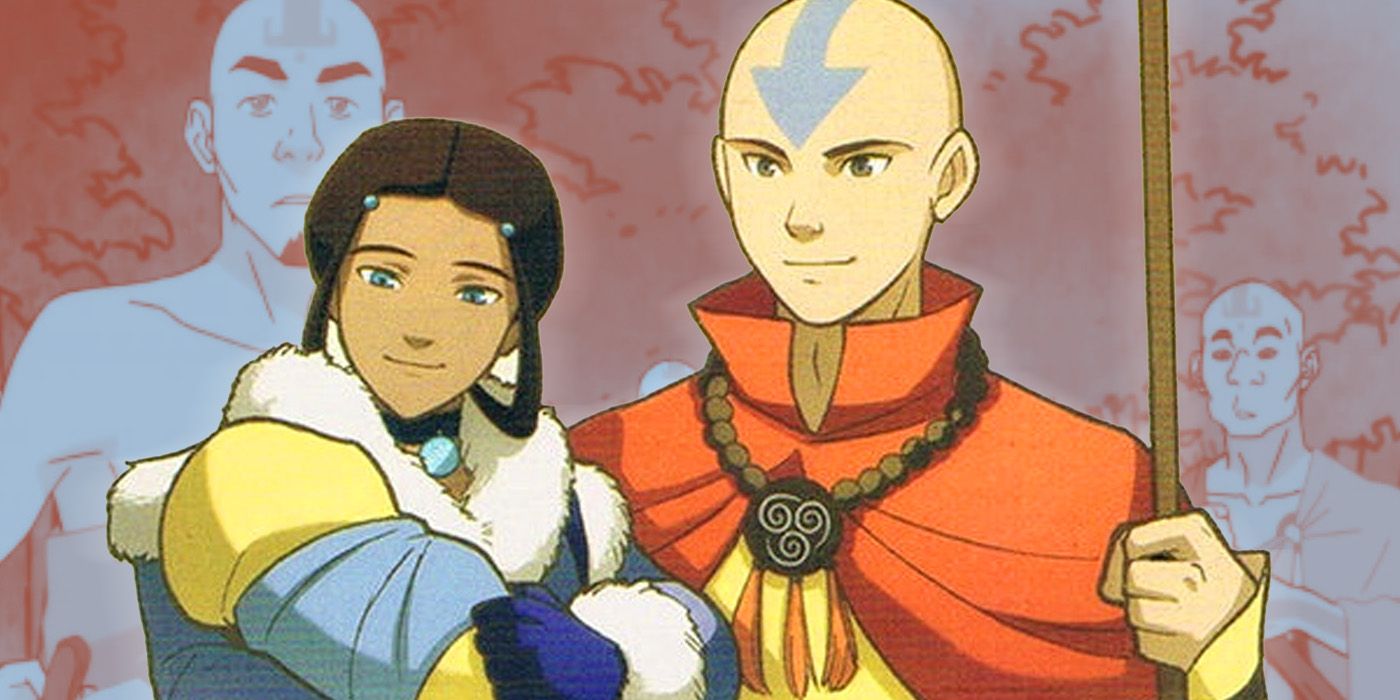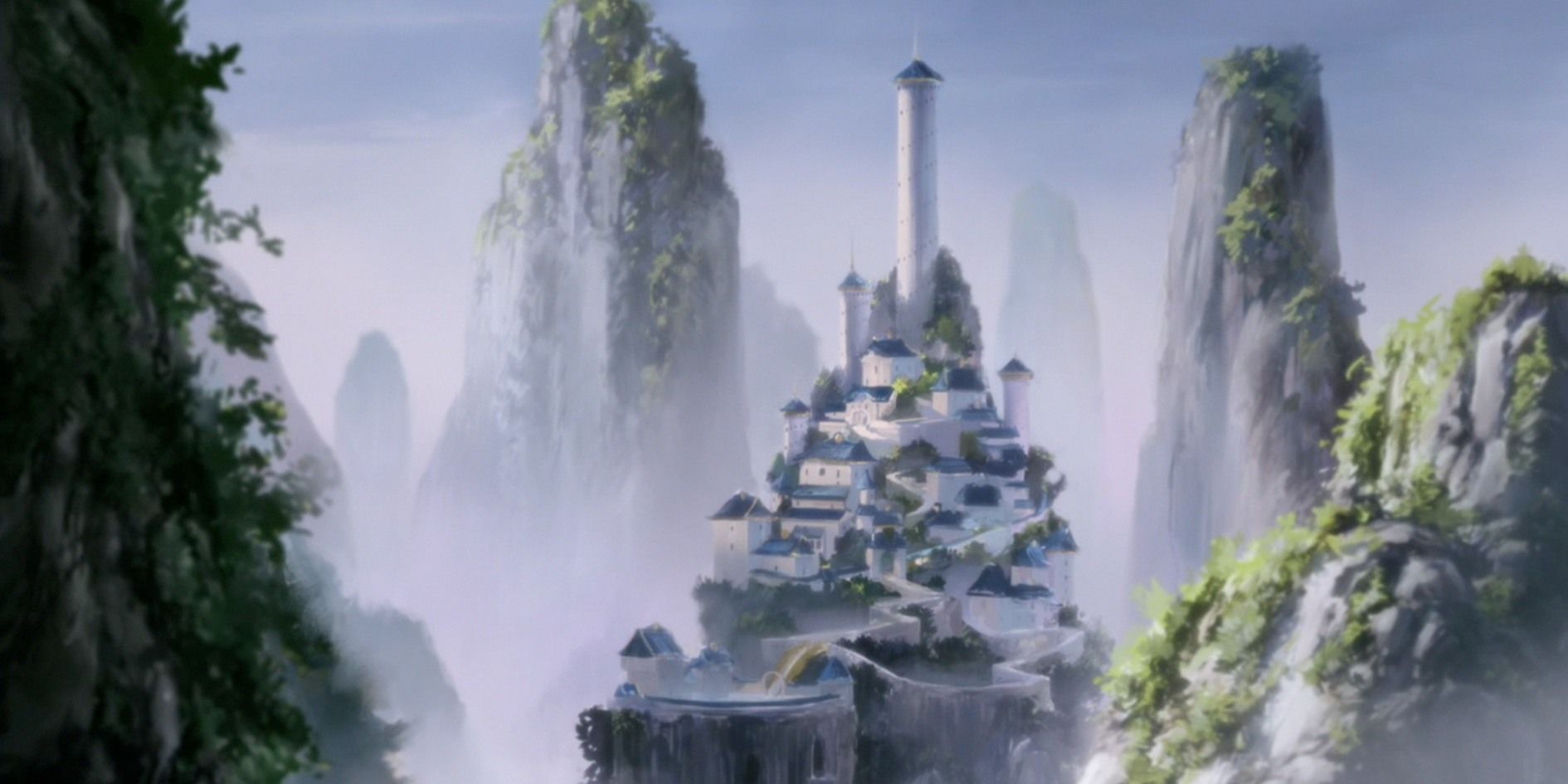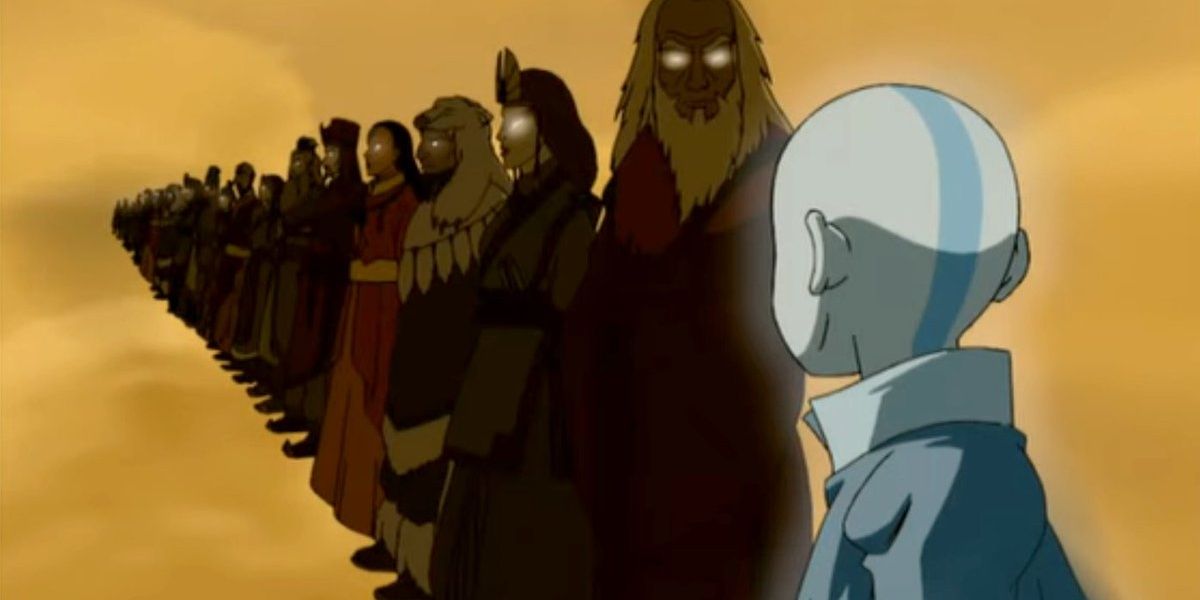Avatar Aang has been a lot of things throughout his life: Avatar, Airbender, husband, father. But as he grew into the legend everyone came to know him as, he also somewhat abandoned his roots as a monk. After all, before he realized his destiny as the Avatar, Aang was just another young ascetic living in an Air Temple. But realizing his destiny as the Spirit Bridge severely complicated things.
When Aang emerges from his century-long deep freeze, all of the Airbenders and Nomads are gone. The Avatar is devastated to realize that he is all that's left of his culture and tradition. While the Air Nuns and Monks are supposed to be pacifists who don't build families or grow too attached to others, Aang is caught in a no-win situation between his Avatar duties and wanting to remain true to his culture.
And, as a twelve year old boy with no Nomads to guide him, Aang falls in love with Katara despite going against the tradition of the monks. This actually has consequences when Aang attempts to unlock his seven chakras with Guru Pathik. As he's about to unlock the seventh level, he realizes that he will have to let go of his feelings for Katara to do so and chooses his heart over mind.
Who knows how Aang's peers from the Air Temple would have felt about his fighting and feelings, but they certainly would have to understand what's at stake when he fights. Standing on the sidelines to meditate and find enlightenment is one thing, but when the fate of the world is at stake, a line has to be drawn and actions must be taken. Aang did the right thing is learning the four elements, forming Team Avatar and ultimately defeating Fire Lord Ozai. He managed to do all this while staying true to his pacifist ways by not to killing Ozai — something his fellow Air Nomad Avatar, Yangchen, told him was unavoidable.
Oddly enough, Aang also did the right thing by having children with Katara and raising them. Aang and Katara started a life together and the both of them raised and trained their children in the cultures of both their nations — some more than others. But, by passing on the Air Nomad culture to his son, Tenzin, Aang was able to revive it in the long run, meaning he was no longer the last Airbender.
But, while he was the last Airbender, Aang was free to continue the Air Nomad tradition however he saw fit. His work clearly paid off in The Legend of Korra because his airbending son Tenzin had four children and raised all of them. Then, when the Harmonic Convergence occurred, new Airbenders arose and a new tradition of Air Nomads were born, ones that followed in Aang's more modern footsteps.
The only downside of this is that parts of Aang's original heritage disappeared with every step he took towards something new. While it's sometimes good to let go of traditions from the past, in the Air Nomads' case, things Aang hadn't yet learned or hadn't thought worth holding onto are forever lost to future generations, who may never reach the level of enlightenment their predecessors did. Nevertheless, the Air Nomads are better off with Aang keeping their spirit alive over a century, rather than disappearing forever.



